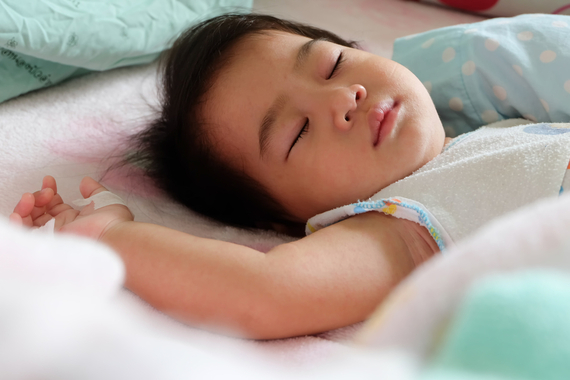 Lots of factors affect your child’s sleep: the timing, the environment and the way in which they go to sleep, developmental leaps and stages, travel, maternal mood. Another sleep disturber is sickness and teething, which have an ongoing impact on your child's ability to sleep well.
Lots of factors affect your child’s sleep: the timing, the environment and the way in which they go to sleep, developmental leaps and stages, travel, maternal mood. Another sleep disturber is sickness and teething, which have an ongoing impact on your child's ability to sleep well.
For those parents whose children sleep well, most of the time, very often the first indicator of a sickness period is night waking. I try to encourage parents to recognise subtle changes that may indicate their child is teething or starting to come down with something, such as:
- Temperature
- Off food
- Change in mood behaviour
- Uncharacteristic crying/clingy behaviour
- Messy nappies
- Flushed cheeks
- Sore bottom
- Excessive drooling
- Untypical frequent night waking, sleep resistance, short naps, early awakening
You will see symptoms of teething during the day, not just at night. During the period of sickness/teething I would encourage parents to have a response plan so that you don’t operate a crisis management approach to sleep that may linger long after the sickness itself. Unfortunately inappropriate sleep habits can become ingrained in as little as 1-3 days so it is important to manage a sick period appropriately.
- Use medication and pain reliever as directed by your GP
- Be responsive at all times and don’t allow your baby to cry when unwell. A pain cry is often represented by high pitched and constant and may not come under control immediately on pick up. Protest crying, although it may be high pitched with some children, it generally is not constant and can be stopped immediately on pick up.
- During your time of sickness if you are not typically bed sharing or plan to co sleep it may not be the best idea to bring your child into your bed. Very quickly they may start to prefer your sleep environment to theirs and then wake at night to be brought in. Camp out in the bedroom, perhaps on a spare bed or makeshift bed so that you can supervise and monitor your child if they are significantly under the weather.
- Make sure that during a sick period you observe a relatively early bedtime 6-7pm, is often relevant and will help prevent your child struggling to go to sleep.
- Provide extra reassurance at bedtime and overnight as appropriate.
- Make sure they are well rested during the day.
Recovery
As soon as your child starts to recover - good indicators would be completion of their antibiotic, improved mood and behaviour, back on their food - then I would try to work your way back to healthy, appropriate sleep habits. Routinely, once the child is better many parents find their good sleep habits return.
Others may find their child is more clingy and needy, but once you are confident they are 100% well you may need to implement a sleep training technique to restore good sleep. I find it can often take the child 3-4 weeks post sickness to get back to good sleep, so give them a chance without being aggressive and view this challenging time as part of our journey as parents.
If your child is 6-9 months plus and often doesn’t sleep through the night, then once they are well, it may be worth considering adjusting your sleeping habits so that your child can start to get better sleep. All children can be helped to sleep better - bearing in mind that ultimately, consolidated, uninterrupted sleep will allow your baby to have an improved immune system, enhanced mood and behaviour and that sleep itself can be a natural anaesthetic in times of sickness and teething.
This article was written by Lucy Wolfe:
Lucy Wolfe, CGSC, MAPSC, is a paediatric sleep consultant and mum of four young children. She runs a private sleep consulting practice where she provides knowledge, expertise and valuable support to families across the country. See www.sleepmatters.ie <http://www.sleepmatters.ie>, t: 087 2683584 or e: lucy@sleepmatters.ie













